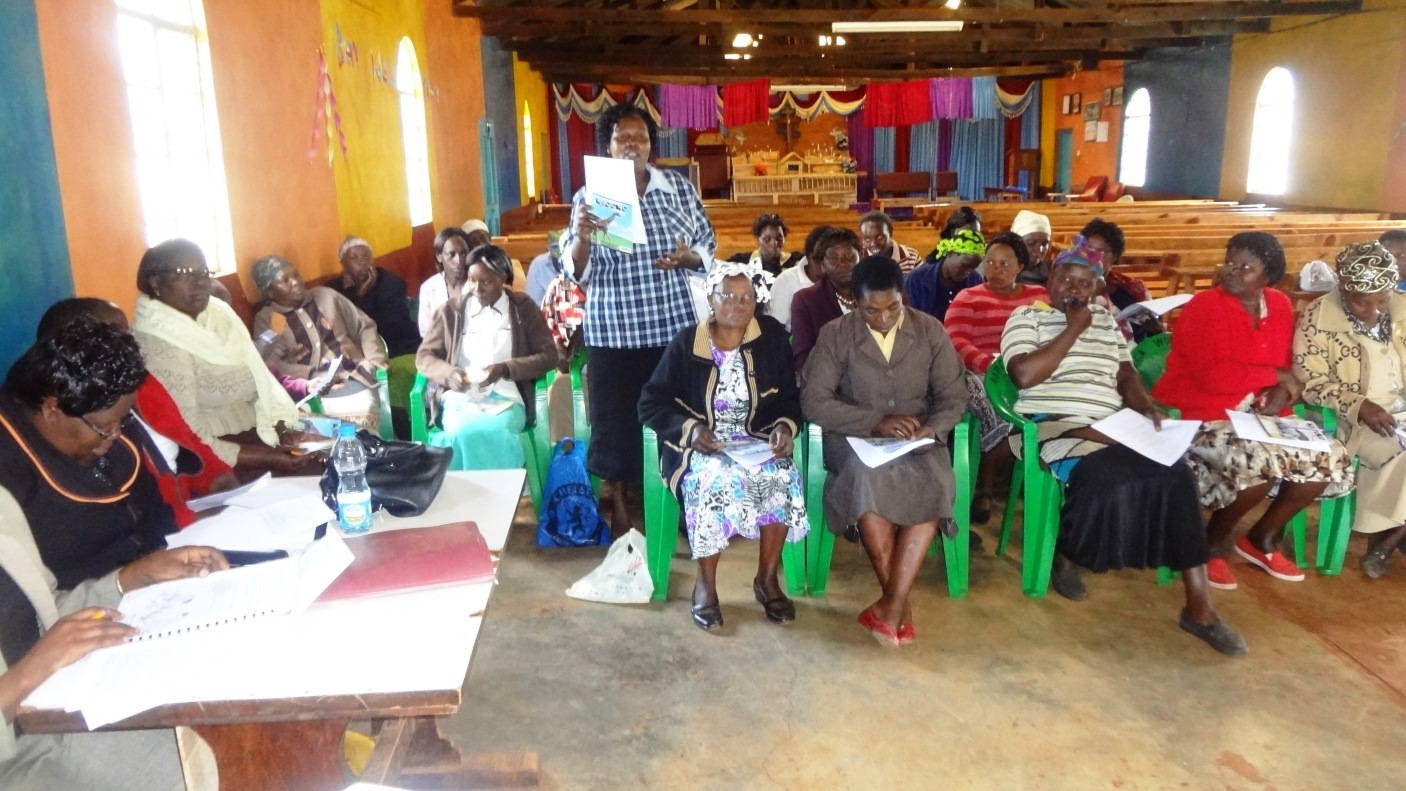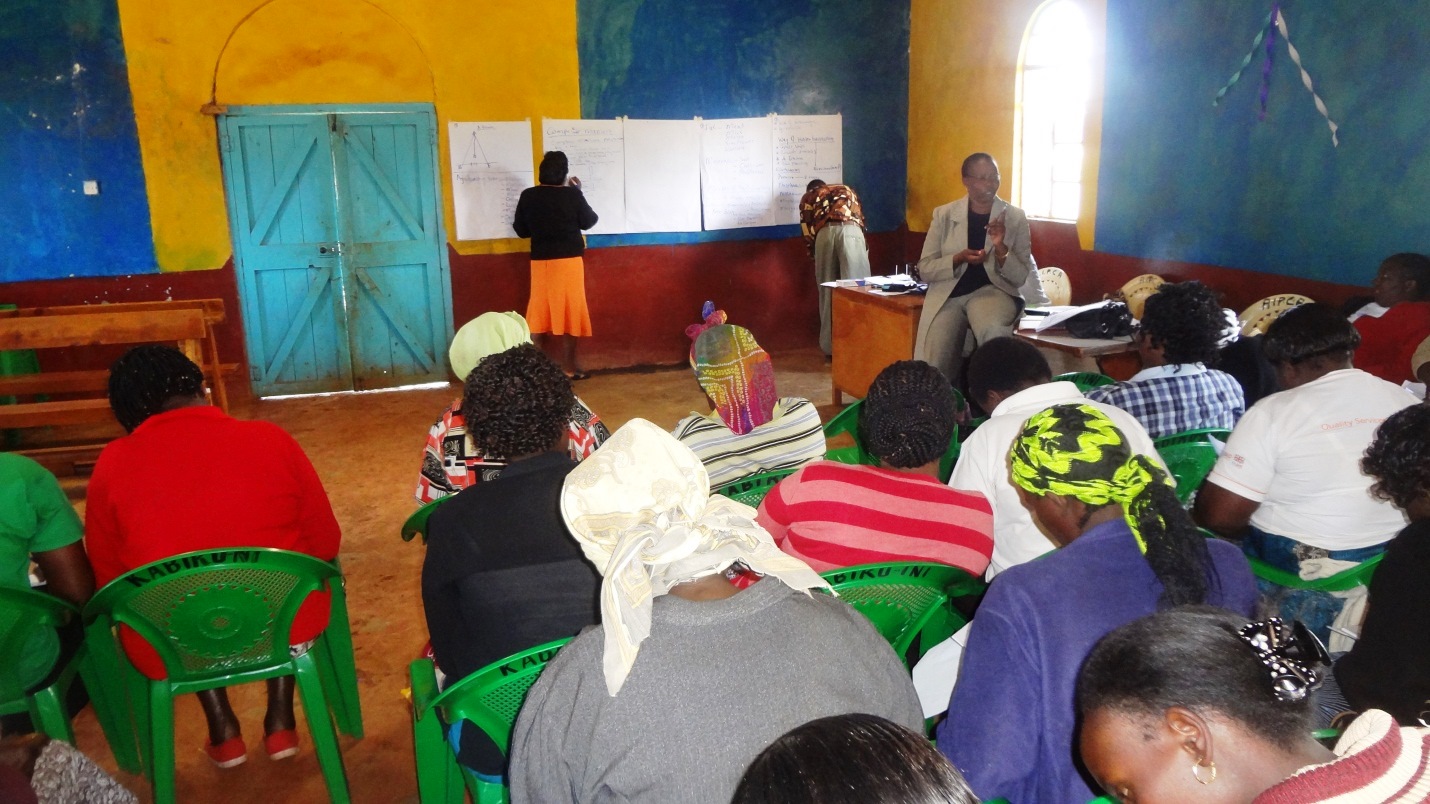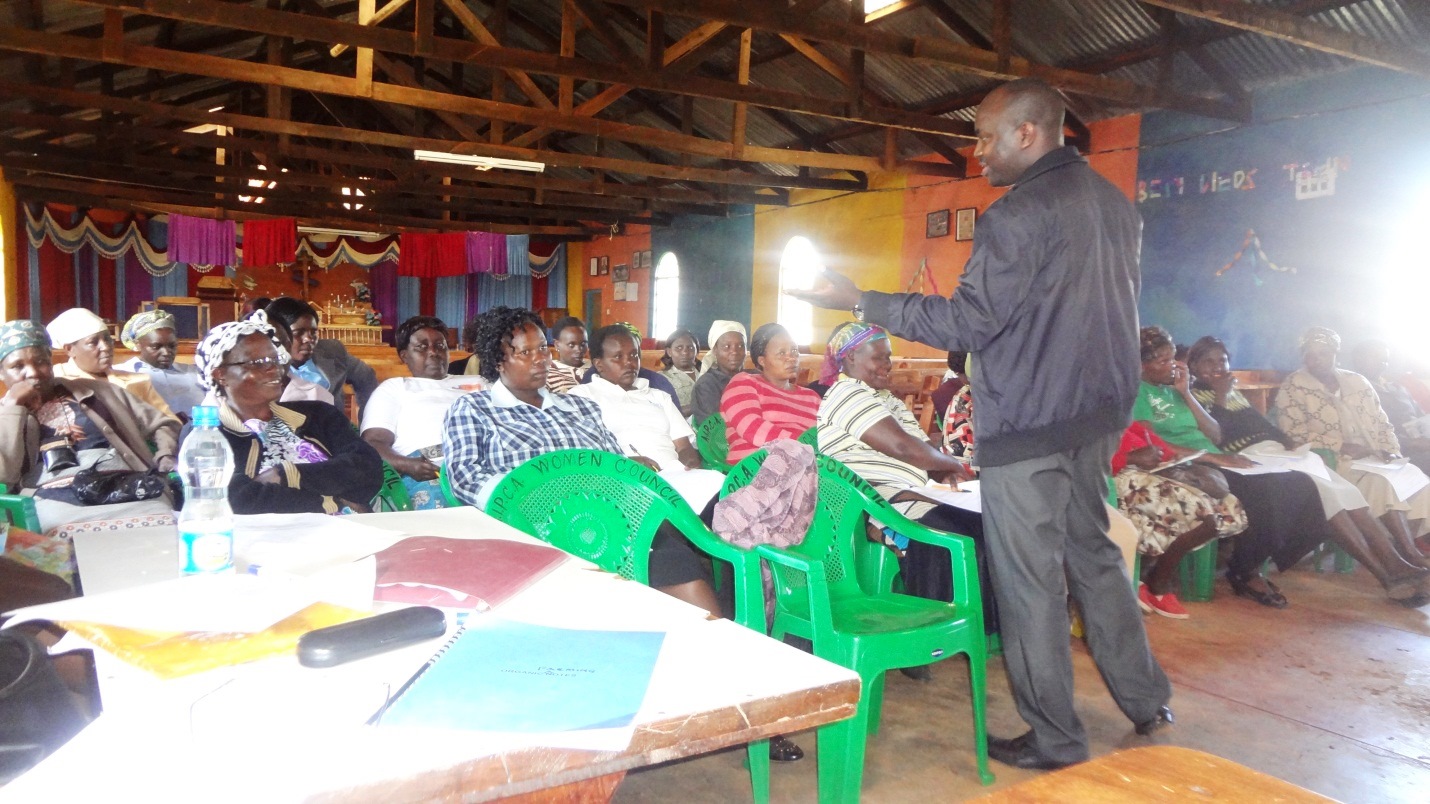GBM Blog
Building Champions on Water Harvesting and Food Security in Nyeri County
The World Food Summit of 1996 defined food security as existing “when all people at all times have access to sufficient, safe, nutritious food to maintain a healthy and active life”. Commonly, the concept of food security is defined as including both physical and economic access to food that meets people's dietary needs as well as their food preferences. Food security is built on three pillars:
– Food availability
Sufficient quantities of food available on a consistent basis.
– Food access
Having sufficient resources to obtain appropriate foods for a nutritious diet.
– Food use
Appropriate use based on knowledge of basic nutrition and care, as well as adequate water and sanitation.
 Farming households in Kenya face increasing poverty levels and food insecurity due to challenges resulting from climate change and variability. In order to help farmers in the region to develop resilience to climate change, GBM convened a food security and water harvesting workshop on 21st August 2014 at AIPCA Church in Ruguru Ward, Nyeri County that brought together 33 participants. The major outcome of the workshop will address how to integrate, water harvesting techniques to boost household food security, improve on-farm retention capacity, mobilize communities to harvest rainwater through river dams, earth dams and farming techniques as a foundation for successful tree planting and food security implementation.
Farming households in Kenya face increasing poverty levels and food insecurity due to challenges resulting from climate change and variability. In order to help farmers in the region to develop resilience to climate change, GBM convened a food security and water harvesting workshop on 21st August 2014 at AIPCA Church in Ruguru Ward, Nyeri County that brought together 33 participants. The major outcome of the workshop will address how to integrate, water harvesting techniques to boost household food security, improve on-farm retention capacity, mobilize communities to harvest rainwater through river dams, earth dams and farming techniques as a foundation for successful tree planting and food security implementation.
The Workshop participants identified site specific smart agricultural practices. These include introduction of drought tolerant crop varieties (legumes, root crops, and vegetables).With regard to natural resource management, various soil and water conservation measures were proposed; like terracing, strip cropping, water harvesting pans, trash lines, agro-forestry, and contour ploughing.
At the workshop, we met a number of inspiring champion farmers that are applying different integrated rainwater harvesting techniques. These champion farmers are spreading the benefits of rainwater harvesting in their community. Moreover, they are increasingly inspiring a number of farmers in their community to apply similar techniques in order to improve food and water security. They have been able to harvest water that can be used to raise indigenous food crops in small kitchen garden to ensure food security at household level. A kitchen garden is a small garden established in a homestead which is a source of herbs, vegetables and fruits which are grown using organic methods.
The workshop concluded with an objective of how farmers can manage their land, crops, soil, water, livestock and other natural resources in the context of a changing climate to improve their well-being.


